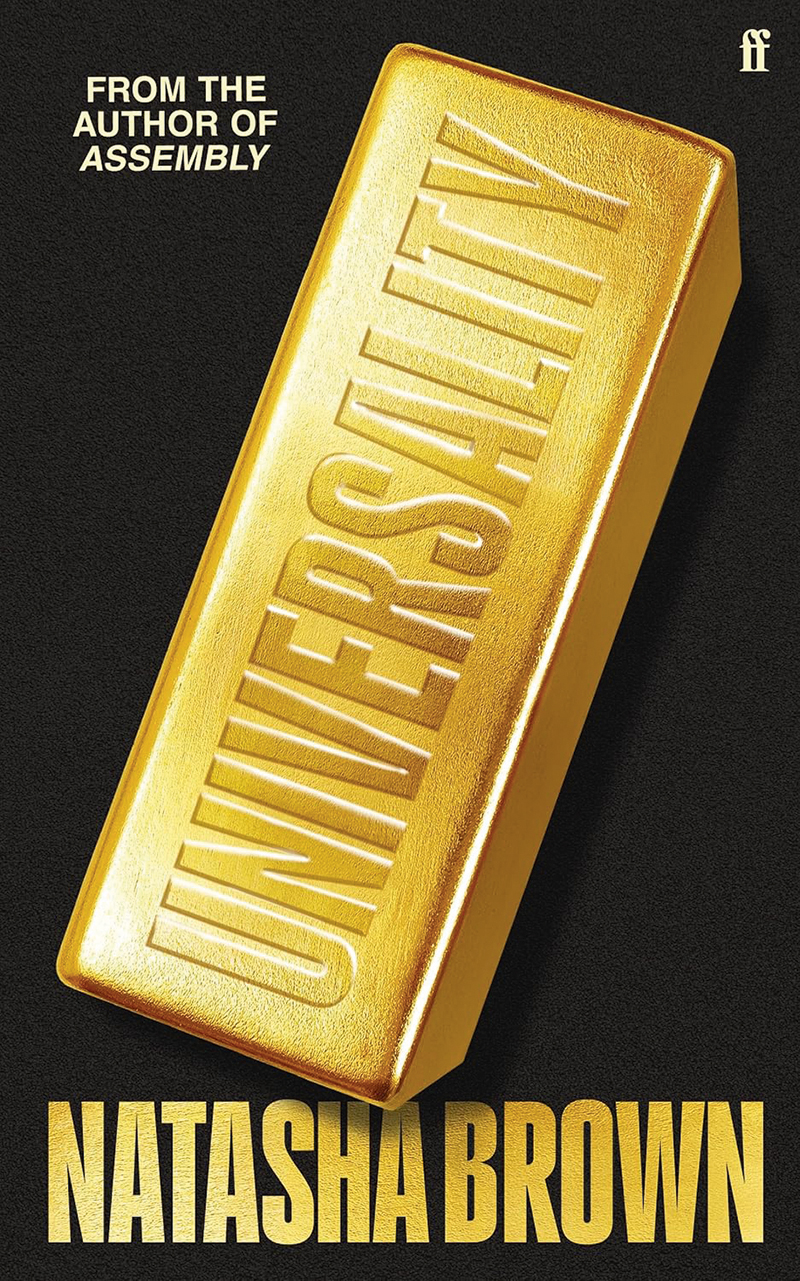Natasha Brown’s incisive second novel, Universality, begins with the kind of viral long-read article you might DM your mates, featuring an illegal lockdown rave by an anarchist collective squatting on a banker’s farm, an activist bludgeoned with a solid gold brick during the proceedings, and said banker – who wants his missing ingot back. Chaos, clicks and conspiracies ensue.
Following publication of this feature, its formerly struggling author Hannah receives a level of success. Her former uni friends can barely conceal their surprise. They rely on their connections, plus help from mummy and daddy to fund their lifestyles, thriving off “the invisible privilege that everyone tried to pretend didn’t exist”. Brown smartly satirises the wheel of class oppression that is forever turning in British society.
The novel’s focus shifts to Miriam ‘Lenny’ Leonard, a middle-aged, girl-bossing white lady columnist who rides the tide of demagoguery, seizing the opportunity for fame, riches and eyeballs at any cost. Lenny’s provocations are all too familiar in the present moment. Language becomes muddied, skidding from hot takes to fresh outrage all over again as she says the unsayable to feed the ghoul of populist opinion.
Brown implicates the ongoing erosion of class solidarity, the inequalities imposed by racial capitalism, and those most vulnerable being scapegoated. If her characters sometimes border on caricature, they are no more absurd than the figures that populate our daily discourse and nightly screens. Brown captures the zeitgeist of our current overlords, with their finger-flicking edicts, whose wealth and power is enlarged by the force of exploitative rhetoric. Tightly wound and unforgiving, Universality is laudable in its attentions to the manipulation of language, satirising the now. As we chug new soundbites down, as algorithms churn us into the void, we must recognise this rhetoric for what it is.
Universality by Natasha Brown is out now (Faber & Faber, £14.99). You can buy it from the Big Issue shop on bookshop.org, which helps to support Big Issue and independent bookshops.
Do you have a story to tell or opinions to share about this? Get in touch and tell us more. Big Issue exists to give homeless and marginalised people the opportunity to earn an income. To support our work buy a copy of the magazine or get the app from the App Store or Google Play.







